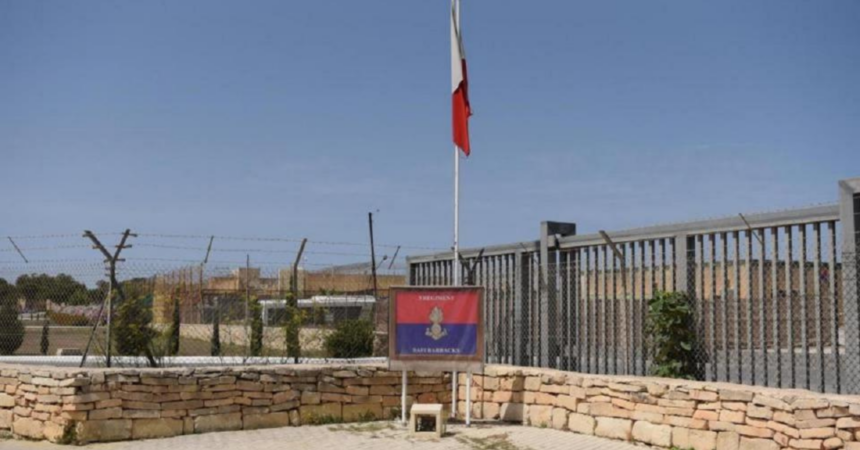The European Court of Human Rights has upheld its previous ruling that found the government had breached the rights of a Bangladeshi journalist in the way his application for asylum had been treated.
The order for the government to pay the journalist €7,000 in damages was also upheld.
In the case S.H. v Malta, the ECHR found that Malta breached the rights of a 23-year-old Bangladeshi journalist whose asylum request was repeatedly rejected by the International Protection Agency (IPA) without a proper assessment of his claim regarding the risks he would face if returned to his homeland.
In the ruling, the Court unanimously declared that there had been a violation of Article 13 in conjunction with Article 3 of the European Convention on Human Rights and that the return of the applicant to Bangladesh without a fresh assessment of his claim would put him at “risk of treatment contrary to Article 3”.
The Court also asked that Malta’s International Protection Agency (IPA) re-evaluate the plaintiff’s well-supported allegation as they had purposefully rejected him on account of his nationality from the start.
The case has exposed flaws in Malta’s asylum system, with the court noting that “the considerations made in the assessment report which provided the reasons behind the decision in the applicant’s case, are nonetheless disconcerting”.
Following the original ECHR decision, human rights NGO aditus, which represented the journalist in the case against Malta, said, the ECHR’s decision “not only upheld the fundamental human rights of our client, S.H. but has also opened the door for hundreds of identical cases against Malta.
“S.H. v Malta raises several red flags in Malta’s treatment of refugees from the moment of their arrival and throughout the procedure intended to protect them. This is a welcome judgement that we hope will lead to urgently needed reforms”.
The ECHR’s original judgement underscored several deficiencies in Malta’s asylum system – many of which had been previously highlighted in a report by the Council of Europe’s Committee for the Prevention of Torture and Inhuman or Degrading Treatment or Punishment (CPT) following a visit to Malta in 2020, as well as by local activists and NGOs.
Such flaws include how, at all stages, Malta’s asylum procedure dismissed S.H.’s claims without ever adequately assessing their substance, the excessive amount of evidence the applicant was required to present to support their claims, and the applicant’s detention and lack of legal assistance throughout most of the asylum procedure.
The journalist was denied asylum since the IPA deems Bangladesh a safe country of origin.
The applicant submitted 40 photos and documents, including first-hand accounts of the events that led him to flee his country of origin, as well as his press cards, photos of him receiving several journalistic prizes and awards, and published articles.
The journalist claimed that in 2018 he reported against corruption and fraud committed by the Bangladesh Awami League (AL).
This, he said, provoked the AL into attacking him while he was taking pictures. After victory at the polls, the AL vandalised his house and threatened to kill him. No action was taken by the local authorities for fear of the ruling party.
As such, the plaintiff argued he had no choice other than to flee Bangladesh in February 2019.
The CPT report findings
In its ruling, the court also referenced the 2021 report by the CPT. It focuses on those sections where the CPT had critically observed how Malta detains and treats its asylum-seekers.
In a report published in March 2021 based on a rapid reaction ad hoc visit to Malta in September 2020, the CPT found: “an immigration system that was struggling to cope: a system that purely ‘contained’ migrants who had essentially been forgotten, within poor conditions of detention and regimes which verged on institutional mass neglect by the authorities.
The same report also noted how, although Maltese law has, on paper, a range of safeguards designed to protect detained migrants from harm and prevent their ill-treatment, the CPT’s delegation found that many of these safeguards were not operating correctly.
These included severely restricting communication with the outside world through the systematic confiscation of mobile phones and a lack of information on the contact details of NGOs, consular assistance, lawyers or the UNHCR.
These issues are all reflected in the ECHR’s judgement that notes how the court had repeatedly “expressed its concerns in the Maltese context about concrete access to legal aid for persons in detention”.
The Court also notes in more than one instance that S.H. was unrepresented and had been in detention in the months before his case was heard by the Maltese authorities.
In other words, the Court understood that, given the applicant’s circumstances, it was unlikely that the applicant could have provided the detailed and technical answers expected by the Maltese authorities.
In September, the Council of Europe’s Committee of Ministers decided to keep a case related to the Safi Detention Centre’s atrocious conditions open to further scrutiny.
The Committee of Ministers asked Malta to provide some tangible proof of improvements. The ministers called on the authorities to “reduce the risk of de facto isolation” and “to submit any reports or assessments of these improvements and their impact on the overall conditions of detention in practice”. Based on the information received, the case will be discussed again in 2023.












